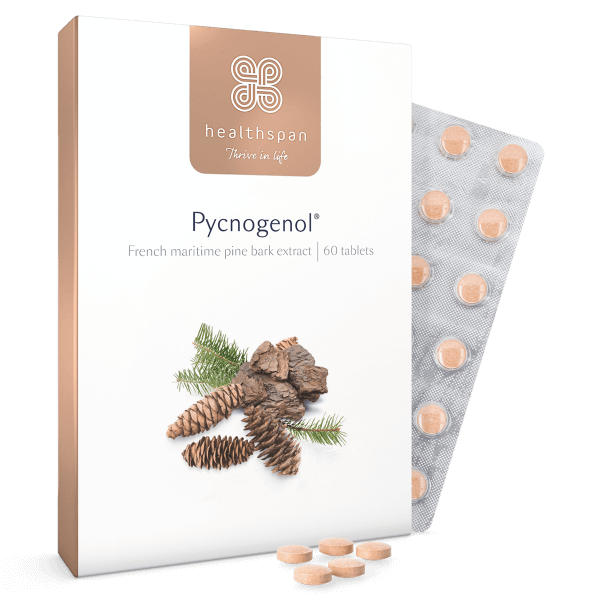Hay fever can make life a misery at certain times of year, but which supplements can help? Jane Collins examines the evidence.
Figures from the charity Allergy UK suggest that around 26 per cent of UK adults currently suffer with hay fever symptoms (and that figure is rising year on year).
Most of us are aware that hay fever is an allergic reaction to pollen: a fine powder that comes from plants like grass, trees and weeds during their reproductive cycle. As part of this reaction the body releases a biochemical called histamine.
Hay fever symptoms
Symptoms can be miserable for the person affected. These typically include sneezing and coughing; itchy, red and watery eyes; a runny and/or blocked and stuffy nose; headache and/or pain around your temples; itchy throat, nose and ears and extreme tiredness (unsurprisingly, hay fever is likely to affect your sleep.)
Hay fever is a condition that can potentially last for months and have a significant impact on your life.
There is currently no cure for hay fever, but there are a number of over-the-counter medicines and lifestyle habits that can help manage it, including taking supplements that could help minimise symptoms. But which are the best supplements to try? Here's what the research tells us.
Bromelain
This is an enzyme found in the core of pineapples and pineapple juice, which has been shown to reduce the inflammation associated with allergies. When taken in supplement form daily for around three months, it has been shown to relieve hay fever symptoms and sinusitis (inflammation and swelling around the nasal passages.)
Pycnogenol
This supplement, made using French pine bark extract, has been shown to reduce histamine release. A small Canadian study showed that taking Pycnogenol for a couple of months (or at least five weeks) before hay fever season produced the best results, so ideally start taking yours as soon as possible.

Pycnogenol®
Naturally powerful French maritime pine bark extract
- Unique blend of natural bioflavonoids
- Find out more at Pycnogenol.com
Vitamin D
Research suggests that people who are deficient in vitamin D are at an increased risk of severe allergic rhinitis.
We know that vitamin D is responsible for a range of crucial processes in the body including supporting immune function, and can help reduce inflammation in the body. Vitamin D is primarily created in the skin on exposure to UV light, but if you are trying to avoid going outdoors in the sunshine to minimise your hay fever symptoms, you would benefit from taking a daily supplement of at least 10mcg.
Magnesium 375mg
This mineral is a natural antihistamine – a substance that helps reduce the histamine produced during the allergic response – and is thought to help 'mop up' histamine when it is released.
Low levels of this nutrient are also linked to worse nasal congestion. One study on rats showed that those rats severely deficient in magnesium had higher blood levels of histamine when exposed to allergens.
Probiotics
A lack of diversity in the gut microbiome can increase inflammation in the body, and has been linked to an increased incidence of allergies such as hay fever. A study published in the American Journal of Clinical Nutrition gave 173 hay fever sufferers either two probiotics (containing Lactobacillus and Bifidobacterium strains of bacteria) every day, or a placebo.
At the end of the eight-week trial those taking the probiotics reported that their symptoms had improved by nearly 50 per cent, compared to 19 per cent for the placebo group.
Turmeric
The active ingredient in turmeric, curcumin, has been shown to have anti-inflammatory and antioxidant properties, and it is suggested that it could help bolster your resistance to allergies by dampening down the immune response to pollen and other allergens.
In one study turmeric was found to alleviate nasal symptoms such as sneezing, a dripping nose and nasal congestion by modulating the allergic response leading to allergic rhinitis. When choosing a turmeric supplement look for one containing black pepper – which is known to increase the absorption of the turmeric – or a high-tech liquid curcumin like Healthspan's Opti-Turmeric.
Zinc
Research suggests that supplementing with the mineral zinc (found naturally in foods like shellfish, meat and seafood) can reduce and relieve the allergic state.
Zinc is known to support the immune system and respiratory function, and to help with sinus health. We know that the immune system triggers the histamine response that causes hay fever symptoms, so supporting your immune system could help to alleviate these symptoms. People with allergic rhinitis (and asthma) have also been shown to have lower levels of zinc in their blood.







